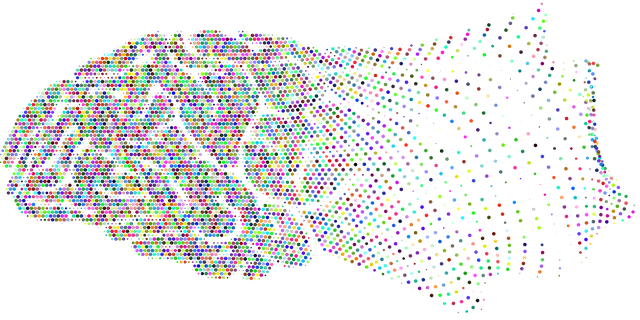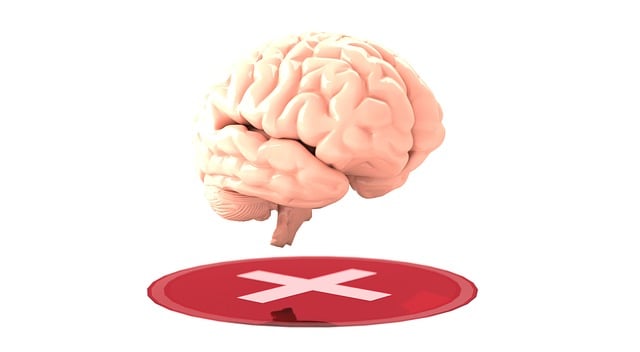In a world where mental wellness is a growing concern, Lone Tree Somatic Experiencing Therapy (LTSET) offers a unique and effective approach. This therapy combines powerful techniques like mindfulness, meditation, and emotional awareness to help individuals manage stress, anxiety, and trauma. By focusing on the mind-body connection, LTSET enables people to take control of their mental health through self-care practices and coping strategies. With a holistic curriculum that includes evidence-based practices, tailored interventions, and regular feedback, these coaching programs empower clients while addressing diverse community needs. Through compassion cultivation and self-care routines, participants gain tools for emotional intelligence and resilience, ensuring ongoing well-being in today's fast-paced society.
Mental wellness coaching programs are gaining traction as a vital tool for fostering holistic well-being. This article explores the burgeoning field of mental wellness coaching, highlighting its growing necessity in today’s fast-paced world. We delve into the unique contribution of Lone Tree Somatic Experiencing Therapy (LTSET), a powerful approach that integrates somatic practices with coaching techniques. By examining effective curricula design and implementation strategies, this guide offers insights for creating impactful coaching interventions and ensuring continuous improvement.
- Understanding Mental Wellness Coaching: A Growing Need
- The Role of Lone Tree Somatic Experiencing Therapy (LTSET) in Coaching Programs
- Designing Effective Coaching Curricula and Interventions
- Implementation, Evaluation, and Continuous Improvement Strategies
Understanding Mental Wellness Coaching: A Growing Need

In today’s fast-paced world, the demand for mental wellness coaching is on the rise, addressing the growing need for holistic well-being. Mental wellness coaching programs, such as those inspired by Lone Tree Somatic Experiencing Therapy, play a pivotal role in empowering individuals to take control of their mental health. These programs focus on fostering positive thinking and self-care practices, which are essential components of maintaining a balanced lifestyle. By combining various techniques, including mindfulness, meditation, and emotional awareness exercises, coaches help clients develop resilience and coping strategies to navigate life’s challenges.
The significance of such coaching cannot be overstated, especially with the increasing rates of stress-related mental health issues. A comprehensive mental wellness program not only aids in risk assessment for mental health professionals but also equips individuals with tools to manage their emotional well-being effectively. Incorporating practices like Mental Wellness Journaling Exercise Guidance can further enhance self-reflection and personal growth. This growing trend signifies a shift towards prioritizing mental health, ensuring folks have access to resources that support their overall symphony of life.
The Role of Lone Tree Somatic Experiencing Therapy (LTSET) in Coaching Programs

The Lone Tree Somatic Experiencing Therapy (LTSET) offers a unique and powerful approach to mental wellness coaching, emphasizing the connection between the mind and body. This therapy focuses on helping individuals process and release traumatic memories or distressing events stored in the body, thereby promoting deep healing and relaxation. By incorporating LTSET techniques into coaching programs, mental health professionals can provide clients with a comprehensive and holistic treatment experience.
In today’s world, where stress and anxiety are prevalent, integrating mindfulness meditation practices alongside LTSET can be particularly beneficial. Cultural sensitivity in mental healthcare practice is also essential, ensuring that coaching programs cater to the diverse needs of different communities. Additionally, community outreach program implementation can expand access to these therapeutic methods, fostering a more inclusive environment for mental wellness support.
Designing Effective Coaching Curricula and Interventions

Designing effective coaching curricula is a nuanced art that requires a deep understanding of human psychology and behavior. At its core, a well-structured program should focus on empowering individuals to take charge of their mental health journey. This involves incorporating evidence-based practices such as those derived from Lone Tree Somatic Experiencing Therapy (SET), which emphasizes the connection between mind and body in trauma healing. By teaching clients how to regulate their physiological responses, SET enhances resilience and promotes a deeper sense of calm, making it an invaluable tool for mental wellness coaching.
The curriculum should be designed to foster self-awareness, emotional regulation, and coping strategies tailored to individual needs. Incorporating Mind Over Matter principles, which encourage clients to challenge negative thought patterns and develop healthier perspectives, can significantly contribute to the program’s effectiveness. Additionally, Mental Health Education Programs Design should prioritize building resilience through practical exercises and mindfulness techniques. This holistic approach ensures that participants not only gain knowledge about mental health but also develop tangible tools to navigate life’s challenges with greater ease and emotional intelligence.
Implementation, Evaluation, and Continuous Improvement Strategies

Implementing a mental wellness coaching program requires a structured approach that incorporates evaluation and continuous improvement strategies. Firstly, establishing clear goals and objectives aligned with evidence-based practices such as Lone Tree Somatic Experiencing Therapy can ensure the program’s effectiveness. This involves assessing the specific needs of the target audience and tailoring interventions accordingly. Regularly gathering feedback from participants through surveys or personal interviews provides valuable insights into the program’s impact and areas for enhancement.
Secondly, integrating compassion cultivation practices and emotional regulation techniques within the coaching framework promotes a holistic approach to mental wellness. Encouraging clients to develop self-care routines can further bolster their resilience and overall well-being. Continuously evaluating these strategies through qualitative and quantitative methods allows for refinement and adaptation, ensuring the program stays relevant and aligned with the latest research in mental health support.
The development of mental wellness coaching programs, particularly integrating techniques like Lone Tree Somatic Experiencing Therapy (LTSET), presents a promising avenue for enhancing psychological well-being. By combining theoretical knowledge with practical interventions, these programs can effectively support individuals navigating various mental health challenges. Through careful curriculum design, implementation, and continuous evaluation, coaches can foster meaningful change and promote resilience. This evolving field holds significant potential to revolutionize mental wellness support, making it accessible and tailored to individual needs in today’s fast-paced world.














